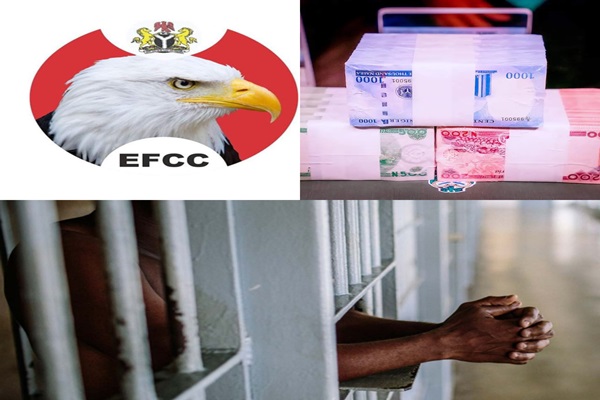Here are 5 definitions of naira abuse in the CBN Act you need to obey to avoid ‘the Bobrisky treatment’
By Jeph Ajobaju, Chief Copy Editor
Naira abuse news is back in the headlines with the invitation issued by the Economic and Financial Crimes Commission (EFCC) to Subomi and Wahab, the sons of Lagos billionaire industrialist Rasaq Okoya, to appear on January 13 for questioning over alleged naira abuse.
The last big news naira abuse cases were those of Bobrisky and Cubana Chief Priest that happened weeks apart about a year ago.
Bobrisky, a crossgender dresser based in Lagos, was jailed for six months; his counterpart, known as a celebrity barman in Abuja, struck a plea bargain with the EFCC and got a soft landing without arraignment let alone prison term.
There are five definitions of naira abuse clarified by the Central Bank of Nigeria (CBN) Act pursuant to its Clean Note Policy to regulate the production, issuance, and circulation of banknotes.
The CBN said the policy was designed to maintain the integrity, quality, and widespread acceptance of naira while promoting efficient currency management.
It focuses on combating the mishandling and abuse of baira banknotes, which undermine their physical durability and increase the cost of replacing damaged notes.
Through public awareness campaigns, the CBN aims to foster a culture of responsible currency handling among citizens and curb harmful practices that shorten the lifespan of banknotes.
The naira and kobo laws, as outlined in the CBN Act, provide a legal foundation for currency management and establish penalties for violation.
The CBN is solely authorised to issue naira and kobo notes (Sections 17, 18, and 19 of the Act). )ther sections define naira abuse and spell out penalties for violation as below:
Counterfeiting (Section 20)
Counterfeiting naira notes is a severe offense punishable by up to five years of imprisonment without the option of a fine.
Spraying banknotes (Section 21)
Spraying (pasting naira on the face or on any other part of someone’s body) or scribbling on naira notes, common practices at social events, are prohibited with violators subject to legal penalties.
Defacement (Section 21)
Stapling, tearing, soiling, or staining banknotes are considered defacement and are punishable offences.
Sale of currency (21(4))
The sale, trade, or hawking of naira notes and coins is strictly forbidden, even though common in some social gatherings, especially in owambe (show off) parties in Lagos and some neighbouring states..
Mutilation
Mutilating banknotes, defined as damage exceeding half a note’s original size, is prohibited.
Whether caused by fire, flooding, or intentional tampering, such damage is deemed detrimental to the monetary system and penalised accordingly.
Read also:
EFCC invites Okoya’s sons over alleged naira abuse crime caught on camera














